#herault de sechelles
Text
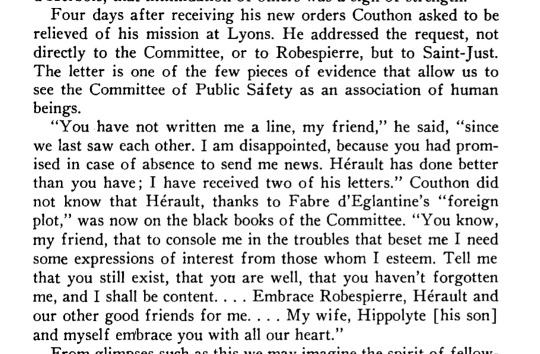
I'm not joking when I say that I think about this letter Couthon sent to Saint-Just at least once a week. 'Embrace Herault' indeed.
#i just!!!!!#so much tragedy in this entire thing#the tragedy on a national level but the personal tragedy#on an individual level too#also couthon asking sj to embrace herault will never not be funny to me#the question is did sj actually go through with it 🤔#anyway#revolution eats its own etc etc#hate that#frev#herault de sechelles#saint-just#couthon#qui posts#TELL ME THAT YOU STILL EXIST#i will neVER shut up about this
87 notes
·
View notes
Text

I made a playlist of songs that I'm listening to while reading frev biographies! Some song choices were inspired by the revolution. Please give it a listen!!! Hope you guys enjoy it!!! :D
Under the cut are a few transparent pngs used in the album cover!

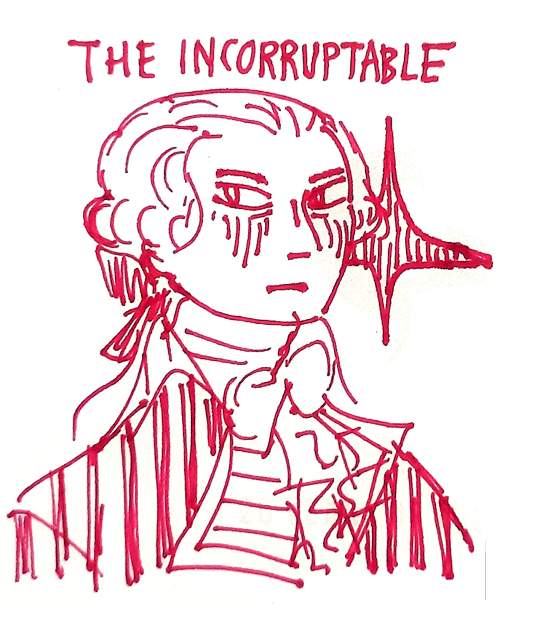

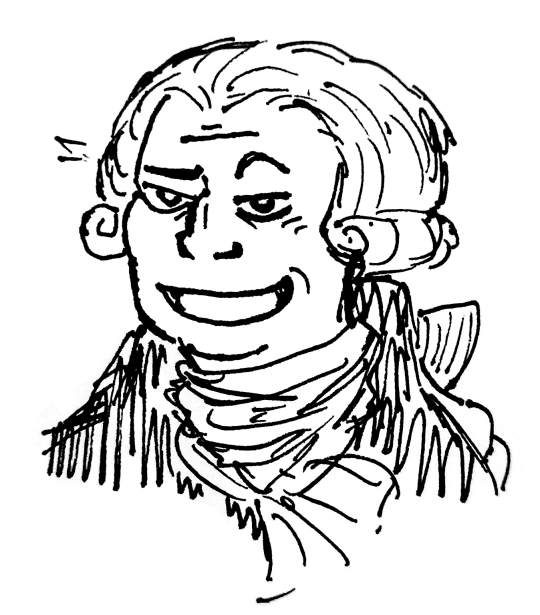
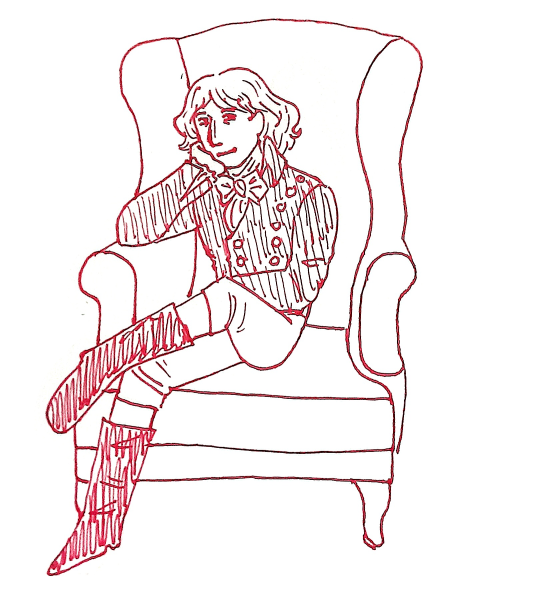
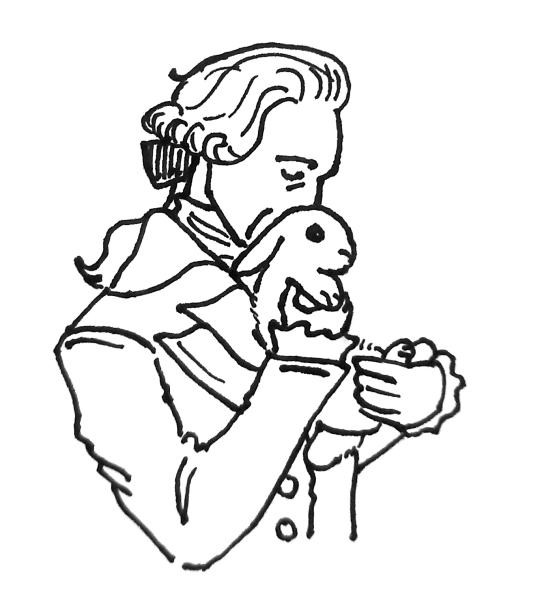

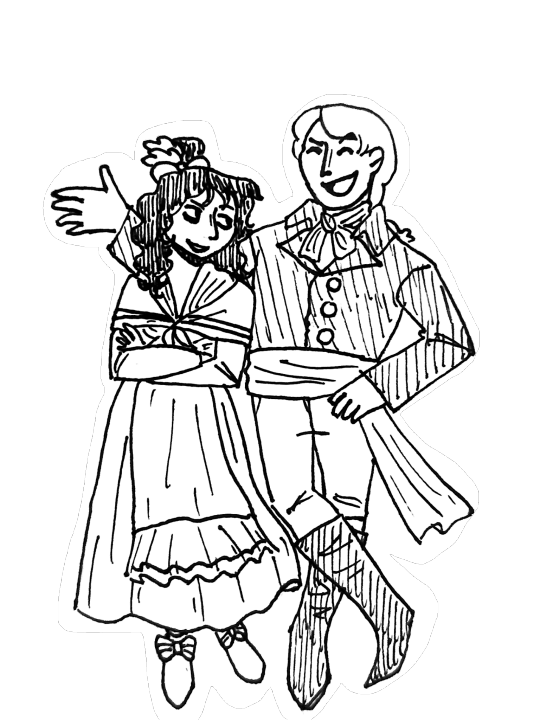
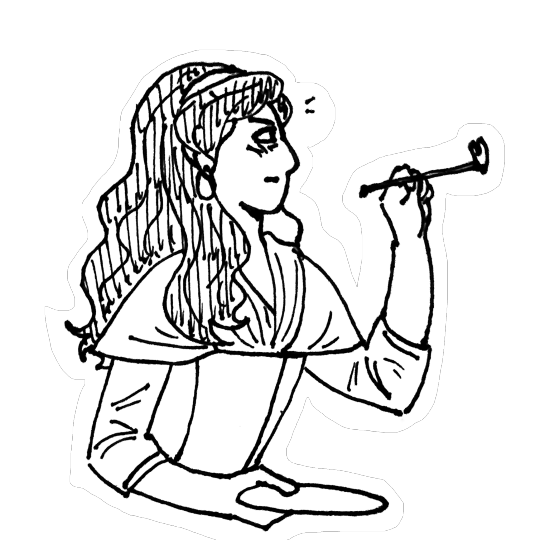
There are still a few ones left and I'll post them on their own later!
Have a good night, dear citizens, im signing out! :D
#maximilien robespierre#Robespierre#frev#french revolution#frev community#jean paul marat#marat#camille desmoulins#desmoulins#danton#georges danton#saint-just#saint just#antoine saint just#Antoine saint-just#georges couthon#couthon#herault de sechelles#herault#augustin robespierre#bonbon robespierre#charlotte robespierre#eleonore duplay#tea art 🎨#tea playlist#oklo makes a post
132 notes
·
View notes
Text

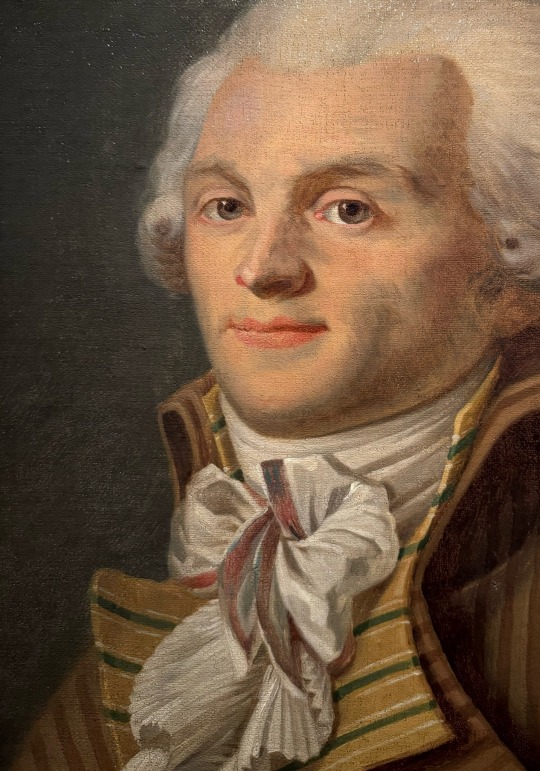
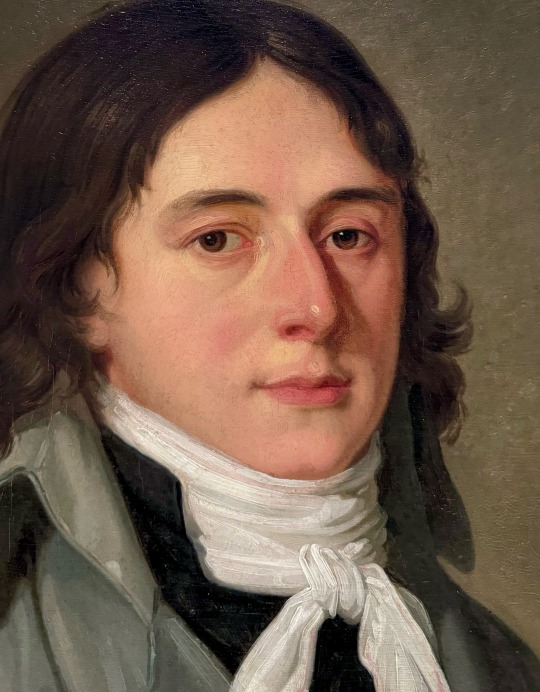
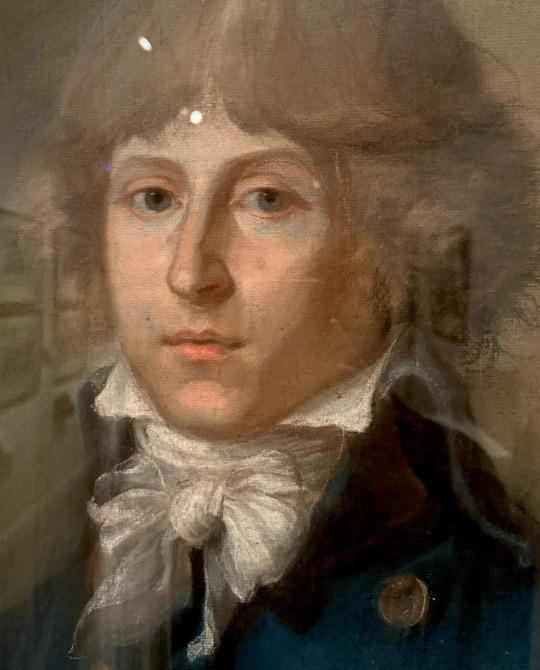

84 notes
·
View notes
Text
Contemporary descriptions of the dantonist execution compilation
Their trial was over around one o’clock in the afternoon. Only Luiner was acquitted. But as he was detained as suspect for the sake of general security he was escorted to the Luxembourg. The fifteen others were sentenced to death, and driven to the scaffold around six o’clock. They were in three tumbrils: in the first was Danton, next to Delacroix; Fabre near the executioner; Hérault opposite Chabot. In the second, Phelippeaux [sic], Westermann, Camille Desmoulins, Basire and Launai d’Angers [sic]. In the last tumbril, one saw but l’Abbé d’Espagnac; his companions were almost all strangers and little known to the public. Almost all approached death with the same audacity that they had shown in court. Danton, who, like Hébert, was recognizable by his red collar, seemed to pay little attention to the crowd around him: he was chatting with Lacroix and Fabre. Hérault was the quietest. Chabot pointed to the sky, laughing. Desmoulins spoke almost continually to the people; the courage he affected seemed like a painful effort, he was an actor who was studying to play his last part well. Diederichsen, danish lawyer, was executed first, the heads of Lacroix and Danton were the last ones to fall. Only that of Danton was shown to the people, among prolonged cries of ”vive la république.”
Suite du Journal de Perlet, number 561 (April 6 1794). A shortened version of this description is given in number 104 of Journal général de la guerre (April 13 1794). According to Michel Biard’s La Liberté ou la mort: mourir en deputé 1792-1795 (2015), these were the only contemporary journals that mentioned any details regarding the execution.
Camille had made incredible efforts to tear herself away from these execrable gendarmes, who have been the lowest servants of despots; so that in going to the scaffold he was completely naked to the waist, because his shirt was in tatters. I saw him cross the space of the palace at the Place de Sang (that's what I called Place de la Révolution) with a frightened air, talking to his neighbors with great agitation, and yet on his face was the convulsive laughter of a man who no longer has his head.
Dictionnaire neólogique des hommes et des choses, volume 2, page 480 (1799) by Louis Abel Beffroy de Reigny. In his Testament d’un électeur de Paris (1795) Beffroy adds that he couldn’t restrain his tears in watching Camille pass by.
I saw the tumbrils pass by to the place of execution, containing the men who, a few days before, had been seen as those who were to consolidate the revolution. Some maintained a firm and calm demeanor, others only showed on their faces that humiliating vexation felt by a scoundrel who finds himself caught in the trap set up by his enemy. This feeling was depicted with the most striking expression on the decomposed countenance of Danton. Camille Desmoulins seemed indignant at the deceit of Robespierre, who had never showed him more friendship than on the eve of his arrest. Bazire and Chabot tried to speak to the people by whom they were surrounded; though they spoke loudly, the noise which was made around them drowned out their voices. One only heard them say that, had not Marat been assassinated, he would have been accused of conspiracy like them, and that with them he would go to his execution. The multitude regarded as blasphemous an assertion of which the truth, a few days later, was disputed by no one. They were executed on 17 germinal.
Histoire Philosophique de la Révolution de France (1807) by Antoine Étienne Fantin-Desodoards, volume 5, page 371-372
Like Hugues Aubriot, who was imprisoned in the Bastille he had had built in order to trap others, when Danton had been condemned to death by the tribunal he had instituted, the crowd gathered in the square to feast their eyes on the horrible spectacle that the cries of the public promised them.
I was going to see Méhul, who was by then living on Rue de la Monnaie, when I came across the tumbril in Rue Honoré in which this revolutionary hero was for the last time presiding over his stricken party. He was calm, between Camille Desmoulins, whom he listened to, and Fabre d'Églantine, who did not listen to anyone. Camille spoke with great warmth, and struggled so much that his unfastened clothes left his collar and shoulders, which the blade was about to separate, bare. Never had life manifested itself in him by more activity. As for Fabre, immobile under the weight of his misfortune, overwhelmed by the feeling of the present and perhaps also by the memory of the past, he no longer existed. Camille who, by cooperating in the revolution, had thought he was cooperating in a good work, still enjoyed his illusion; he believed himself on the road to martyrdom. Alluding to his last writings, he shouted: “My crime is to have shed tears!” to the crowd. He was proud of his conviction. Fabre was on the other hand ashamed of his, he, who had been pushed into revolutionary excesses by less generous interests, was overwhelmed by the awareness of the truth. He saw only torture at the end of the little road that remained for him to travel.
Another physiognomy also attracted my attention in this cartload of reprobates, it was that of Hérault de Séchelles. The tranquility which reigned over the handsome face of this former advocate-general was of a different nature from the tranquility of Danton, whose face offered a caricature of that of Socrates. Hérault's calm was that of indifference; Danton's calm that of disdain. The pallor did not sit on the latter's forehead; but that of the other was colored with such a fiery tint that it looked less like he was going to the scaffold than returning from a banquet. Hérault de Séchelles finally seemed detached from life, the preservation of which he had purchased by so much cowardice, by so many atrocities. The appearance of this selfish man astonished everyone: everyone asked his name with interest, and as soon as he was named he no longer interested anyone. […] I went up to Méhul's, and, my imagination full of what I had just seen, I told him: “Tragedy well begun! I want to see the end of it, after having finished in three words the business which brought me. This Danton really plays his role well. We are all on the eve of the day that will end for him. I want to learn how to pass it well too.” "Useful study," said Méhul, who saw things with the same eye as me, and who would have accompanied me if he hadn't been in his dressing gown and slippers.
However, the fatal tumbril had not stopped moving; the execution was beginning when, after having crossed the Tuileries, I arrived at the gate which opens onto the Place Louis XV. From there I saw the condemned, not mounting together, but appearing one by one on the fatal scaffold, to die immediately by the effect of the movement which the board or the bed on which was about to begin for them the eternal rest. The rest of the operation was hidden from me by the operatives running it. The accelerated fall of the blade alone told me that it was was being carried out.
Danton appeared last on this scene, flooded with the blood of all his friends. Day was falling. At the foot of the horrible statue whose mass stood out in a colossal silhouette against the sky, I saw the rising, like a shadow of Dante, of this tribune who, half-lit by the dying sun, seemed as much to emerge from the tomb as ready to enter it. There is nothing as daring as the countenance of this athlete of the revolution; nothing as formidable as the attitude of this profile which defied the axe, like the expression of this head which, ready to fall, still seemed to dictate laws. Horrible pantomime! time cannot erase it from my memory. I found there all the expression of the sentiment which inspired Danton with his last words; terrible words which I could not hear, but which people repeated to each other, quivering with horror and admiration. ”Above all, don't forget,” he said to the executioner with the accent of a Gracque, don't forget to show my head to the people; it’s worth seeing.” At the foot of the scaffold he had said another word worthy of being recorded, because it characterizes both the circumstance which inspired it, and the man who uttered it. With his hands tied behind his back, Danton was waiting his turn at the foot of the stairs, when his friend Lacroix, whose turn had come, was brought there. As they rushed towards each other to give each other the farewell kiss, a policeman, envying them this painful consolation, threw himself between them and brutally separated them. "At least you won't prevent our heads from kissing each other in the basket," Danton told him with a hideous smile. Danton, as I have said, perishes as a result of a security more justified by reason than by politics. Warned of Robespierre's plans, Robespierre knows too well that he cannot send me to the scaffold without proving that he can be sent there himself." Resting on this idea, he fell asleep in laziness and pleasures.
Souvernirs d’un sexagénaire (1833) by Antoine Vincent Arnault, volume 2 page 95-100. According to Biard in Danton: Le mythe et l’histoire (2016) this is the only semi-authentic source we have for Danton’s last words being ”show my head to the people, it’s worth seeing.” It’s still however somewhat dubious considering Arnault places Camille in the wrong tumbril.
#happy deathday dantonists!!#camille desmoulins#fabre d’eglantine#pierre philippeaux#herault de sechelles#and everyone else who was executed tbh#yes even you unknown danish lawyer#french revolution#frev#frev compilation#george danton#danton#did i seriously forget to add a Danton tag…
55 notes
·
View notes
Text

"Please remember to touch grass." -Hérault de Sechelles, "Theory of Ambition" (~1788)
21 notes
·
View notes
Text

Fabre and Hérault.
67 notes
·
View notes
Text
I sweAR TO GOD- If there’s one thing makes me question if I’m really aroace, it’s 18th century French men. Let me say it again…
EIGHTEEN CENTURY MFING FRENCH MEN-



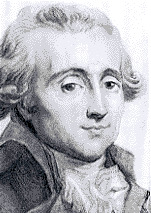

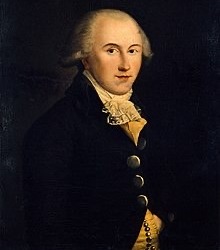

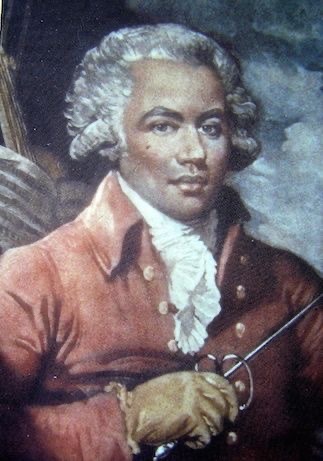

LIKE WHY ARE THEY SO- AUUUUGGGHH
I know this is aesthetic attraction, BUT IMMA KEEP IT REAL WIT Y’ALL- Some of these mfs sLAP! LIKE THEY CAN HIT. ME. UP.
PUHLEASE!
Hand in marriage, Citoyen. HAND IN MARR- Nah I’m joking.
But seriously, why make them this fine bruh, like- oh my God…
IF I MISSED SOME OF YOUR FAVS OR FLOPS, PLEASE DO MENTION THEM!
#also joseph bologne (middle bottom pic) is actually a guadeloupean creole#however his father is french i believe…#probably my first post on frev#frev#french revolution#maximilien robespierre#louis antoine de saint just#camille desmoulins#georges couthon#herault de sechelles#augustin robespierre#barbaroux#joseph bologne#collot d'herbois
58 notes
·
View notes
Text

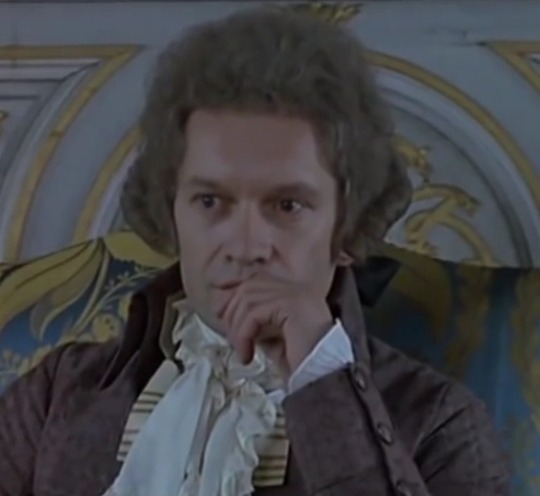
Looking at this portrait of Hérault (?) made me think Andrzej could totally pull that off
#not a perfect fit and i'm too used to him playing robespierre#but i can see it#he'd make an excellent slutty intellectual#also wasn't andrzej. like. super tall#andrzej seweryn#herault de sechelles
24 notes
·
View notes
Text
anyone know of any good biographies or articles on hérault? i would certainly like to know more about that charming little hoe ♡
#hérault de séchelles#herault de sechelles#frev#frev community#french revolution#revolution francaise
24 notes
·
View notes
Text
5 pages into Dard's biography of Herault and I am taking emotional damage on each and every single page.
BUT.
Official passport description of Herault!

IF my math is correct 5 pieds 8 pouces translates to 5.6 pieds de roi which gives us Herault standing at a whopping 182 cms.
Tall Herault confirmed.
#frev#herault de sechelles#qui posts#he really said im gonna give the gays everything they want#qui reads dard
33 notes
·
View notes
Text
Sexy clinch 1790s French edition
#napoleon bonaparte#josephine beauharnais#charlotte robespierre#fouche#joseph fouché#herault#hérault de sechelles#suzanne de la morency#caroline bonaparte#joachim murat#murat#joseph fievée#theodore leclercq#louis-antoine saint-just#thérèse gellé#theresia cabarrus#jean-lambert tallien#camille desmoulins#lucile desmoulins#mademoiselle raucourt#sophie arnould#clinch#romance art#frev#french revolution#napoleonic era#let the games begin
58 notes
·
View notes
Text

Sweet Summer Child Lejeune (age 17)
One of us who had once served for a few months in a regiment of dragoons was chosen as our captain, another named Bertier became our lieutenant; and two days after our organisation and equipment were completed we defiled before the National Convention, which held its sittings in what is now the Chapel of the Tuileries.
Herault de Sechelles was then president. About twenty-five or thirty years old, belonging to a very distinguished family of senators, he gave us an address. He was a friend of my father's, and he singled me out in the front rank, where I was placed on account of my height, and said to me: 'As for you, my young friend, your arms and those of your comrades will be the ramparts of your country, and your brushes will soon commemorate our victories.'
#herault de sechelles#louis francois lejeune#french revolution#frev#louis-francois lejeune#my desire for historical accuracy ends at buildings#fuck buildings#shoddy tents and bivouacs is where it is at
31 notes
·
View notes
Text
16 Germinal and aftermath, from the memoirs of Charles-Henri Sanson, executioner (English trans.)
Germinal 16 -- By the order of Citizen Fouquier, I remained in the vicinity of the Tribunal all day yesterday. The hall of justice was so crowded that I could not gain admittance. I arrived at nine o'clock this morning at the Conciergerie. As I passed the threshold, a gendarme tapped me on the shoulder, and said to me: ‘You'll have plenty to do to-day;’ and Riviere added: ‘They are all sentenced to death.’ He was mistaken, as I found out afterwards, for Citizen Luillier was acquitted. He was so inoffensive and obscure that no one thought of him. Richard's lodge was crowded with people who wanted to see the prisoners. As I was crossing the courtyard, Wolf, one of the clerks, told me to follow him upstairs. Citizen Ducray and two other clerks were writing; and Fabricius Paris, the head clerk, was walking up and down the room. His eyes were very red; he was deadly pale, and he trembled like a leaf. When he saw me, he said: “I am going away.” Ducray turned round and said: ‘Will you sign?’ ‘No, no, once more,' replied Citizen Fabricius; ‘I would rather burn my hand than sign.' He went away with tears in his eyes. I was not surprised, for I knew him to be a great friend of Danton's, and his pluck pleased me. Fouquier-Tinville, who is a cousin of Desmoulins, had not the same scruples. Lescot-Fleuriot, deputy-prosecutor, and two other functionaries, entered the room. Lescot asked me whether my carts were ready. I replied that they were. He then ordered me to go down and wait, which I did.
I had been waiting for a considerable time, when a gendarme came to tell me that I was wanted by Fouquier-Tinville. I found a good many persons in his closet — old Vadier, Amar, Coffinhal, Arthus, Herman, among others. Although Fouquier was present, I received the order of execution from the hands of Lescot. He told me that the convicts had rebelled against the Tribunal; that they would probably offer new resistance; that to prevent any mishap they would be introduced one by one; that I should have to seize them immediately, and pinion them. Fleuriot added that if the convicts attempted to excite the people on their way to the scaffold, I was to go at a trot, and make all haste. He also recommended extreme celerity in the execution itself, observing that the sooner the ‘ruffians' died the better. After this, a discussion arose as to the number of carts required. I had ordered three out. Lescot said that one was sufficient, and Coffinhal observed that only one should be used. I objected to this, and obtained two carriages.
I then proceeded to the parlour, which was full of gendarmes and soldiers. They formed two thick ranks. Half-an-hour elapsed before one of the convicts appeared. This was Chabot. He looked very ill. He was surprised at finding himself alone, and murmured: ‘Where are the others?' He was pinioned, and his hair was cut. Bazire was the next to appear. Chabot rose, and, running up to him, exclaimed, with tears in his eyes: ‘My poor, poor Bazire, it was I who brought you to this!’ Bazire pressed him in his arms, without a word of reproach.
The two Freys, Delaunay, member of the Convention, the Abbé d'Espagnac, and Disderiksen were led in after Bazire. After these, Philippeaux, Lacroix, Westermann, and Fabre d'Eglantine, Two turnkeys supported the latter, who was ill. During the toilet, Fabre said he wished to speak to Fouquier. One of my assistants called a clerk, who said this was not possible. Citizen Fabre then became angry, and cried : 'You ought to be satisfied with murdering me, and not steal my property! I publicly protest against the infamy of the members of the Tribunal, who have stolen from me a MS. comedy, which had nothing to do with the trial.' Lacroix and Philippeaux were calm.
Fabre was still speaking when a noise was heard in the passage. We recognised the voice of Citizen Danton, and there was a dead silence. His words came out like a torrent. I distinctly heard him say to the clerk who wanted to read out his judgment: ‘Be d — d, and your judgment with you! I won't listen to it! What a farce!' He thundered away, and all seemed to recoil before him. But when he saw the other convicts, his demeanour altered completely. He assumed a cold, indifferent air, and calmly walked up to me. He sat down, and tore away his collar, saying: 'Do your duty, Citizen Sanson.' I cut his hair myself. It was thick and hard like a mane. Meanwhile he went on speaking to his friends: ‘This is the beginning of the end; they'll guillotine the representatives wholesale. Committees governed by a Couthon without legs, and a Robespierre…. If I could leave them mine, they might go on for some time….But no; France will awake in a cesspool before long.' Shortly after, he exclaimed: 'We have accomplished our task. Let us go and sleep.'
Citizens Hérault de Séchelles and Camille Desmoulins were led in next. The former gave no sign of emotion; the latter spoke of his wife and child in heartrending terms. As soon as he saw us, he was seized with a tremendous fit of rage. He rushed upon my assistants, and struggled with them like a giant. All his clothes were torn in the scuffle. Four men had to hold him down on the chair. His friends tried to soothe him — Fabre with soft words, Danton with a tone of authority. The latter said: 'Leave these men alone! What's the use of fighting with the servants of the guillotine? They are only doing their duty. Do yours.'
At length everything was ready. Ducray headed the cortége. The members of the Convention and General Westermann occupied the first cart, in which I and Henri sat down also; four assistants were in the second cart with the other convicts. The escort was as numerous as that provided for the Queen and the Girondins. Danton stood in the first rank, behind me; next to him was Hérault de Séchelles; Fabre, Camille, and Philippeaux were behind. Chabot was the only one who sat down. He had tried to poison himself, and suffered much. Bazire stood next to him, and spoke to him words of tender friendship.
As the carter whipped his horse Danton exclaimed: ‘The idiots! they'll cry "Long live the Republic!" In half-an-hour the Republic will be without a head!' Fabre d'Eglantine was inconsolable about his comedy, which he said was in verse; upon which Danton laughed, and said to him: 'Verses! you'll have enough of them in a week, and we too.'
As we reached the quay, Camille Desmoulins became very furious. 'Do you not recognise me?' cried he; ‘The Bastille fell at my bidding! Come to my help, republicans! Do not let them murder us!'
His cries were received with groans. His fury increased, and we had to threaten to tie him to the side of the cart if he did not remain still. Danton, who clearly saw that the people who surrounded them would not rise to free them, said to Camille in a strong voice: ‘Be quiet, be quiet ! do not hope to soften this vile rabble.' And Lacroix: ‘Be calm; think rather of commanding respect than of exciting pity.'
Danton was right: there was no hope for them. The escort was surrounded by the usual attendants of the guillotine, and they shouted so that it was impossible for the public at large to hear what the prisoners said.
Passing before a cafe we saw a citizen, seated on a window-sill, who was drawing likenesses of the prisoners. The latter looked at him, and murmured: ‘David, David!' Danton raised his voice, and cried: 'Is that you, valet? Go and tell your master how soldiers of liberty can die.' Lacroix also spoke to him violently. David went on drawing. Doors, windows, and shutters were closed in Duplay's house (where Robespierre lives). When the prisoners saw the house, they aimed sarcasm over sarcasm at its walls. ‘Vile hypocrite!' said Fabre. ‘The coward is hiding himself, as he hid on August 10,’ cried Lacroix. Danton's voice rose louder than any. His face was purple, and his eyes glistened like burning coals. 'You shall appear in this cart in your turn, Robespierre,' he exclaimed, ‘and the soul of Danton will howl with joy!'
Danton was the same to the last: passing without transition from the most violent anger to the greatest calmness; at times brutal, at others sarcastic, and always firm. As we came in sight of the scaffold his colour slightly altered. The attention with which I looked at him seemed to displease him, for he elbowed me roughly, saying: 'Have you not a wife and children?' I replied that I had. He then resumed with impetuosity: 'So have I. I was thinking of them.' And I heard him murmur: ‘My wife, I shall not then see you again! My child, I shall not see you!' But a few seconds after he was himself again.
Delaunay, Chabot, Bazire, the two Freys, Gusman, Disderiksen, and D'Espagnac died first. When Camille Desmoulins was on the platform he asked me to do him a last favour, which was to take a lock of his hair and send it to his mother-in-law. He then stepped towards the weigh-plank without resistance. Fabre, Lacroix, Westermann, Philippeaux suffered next. Westermann cried several times, 'Vive la République!' Hérault de Séchelles came next, and Danton with him, although he was not called. My assistant had already seized Séchelles, when Danton advanced to embrace him. But it was too late. Danton looked on while his friend was being executed, with such coolness as does not belong to man. Not a muscle in his face moved. He seemed to defy not only the fear of death, but death itself. The weigh-plank was hardly lowered when he advanced. I advised him to turn round while the body was being removed. He shrugged his shoulders contemptuously. ‘Do not forget to show my head to the mob; they have not often seen one like it!'
When, according to his last wish, Danton's head was shown, there were cries of 'Vive la République!' but not many.
The cemetery of La Madeleine, where are the King, the Queen, and the Girondins, having been closed, the fifteen corpses of the Dantonists were taken to the small cemetery which has just been opened near the Barrière Monceaux.
I went to the Palace of Justice to take orders for tomorrow. Met Desboisseaux and Vilate, two jurors. They wanted to know how Danton had died. I related what I had seen. 'It is not astonishing; he was drunk,’ exclaimed one of them. I assured them that Danton was not drunk at all; upon which they called me a traitor and a blackguard, and went away in a passion.
Germinal 17 -- I did to-day what Citizen Desmoulins asked me. I got the address of his father and mother-in-law, at his house in the Rue de la Comedie, and went to No. 17 Rue des Arcs. Of course I did not go up. I sent for the servant, without telling her who I was, and said that, being present at the execution of Citizen Desmoulins, he had asked me to hand a locket to the mother of his wife. I then departed; but I soon heard steps behind. The servant came up, saying that Citizen Duplessis, Camille Desmoulins’ father-in-law, wished to speak to me. I answered that I was in a hurry, and that I would return another day. But at that moment Citizen Duplessis himself came up. I told him what I had said to the girl. He answered that I must have something more to say to him; and he insisted so much that I could not but follow him. He lived on the second floor. We entered a richly-furnished room. He showed me a chair, and sat down. Hearing the cry of a child, I turned round and saw a cradle in the corner of the apartment. Citizen Duplessis ran up to the cradle, and took out a child, who looked unwell. He showed him to me, and said: ‘It is his son.’ He kissed the baby, and said, with an effort: 'You were there — you saw him?' I nodded my assent. ‘He died like a brave man — like a republican, eh?' I answered that Camille's last words had been for those he loved. After a pause, he suddenly turned pale, and wringing his hands: 'And my poor daughter, my Lucile!' he exclaimed; ‘will they kill her, as they killed him?' And he expressed his grief in heartrending terms. A cold shudder crept over me. M. Duplessis walked to and fro, clenching his fists. As he was passing before a bust of Liberty on the mantelpiece, he threw it down, and furiously broke it to pieces. I was grieved and awed, and found no words of consolation for the poor old man. There was a ring at that moment, and an elderly lady, whose handsome face was pale with despair, entered and threw herself into the arms of Citizen Duplessis, crying: 'Lost! she is lost! She is to appear in three days before the Tribunal.' It was Madame Desmoulins' mother. I was seized with terror at the thought that I might be recognised by a woman in the loss of whose happiness I had a finger; and I ran away, as if I had committed a crime.
….
Germinal 20 -- Desmoulins' wife is at the Conciergerie with her so-called accomplices. They are to appear tomorrow before the Tribunal, with Citizen Chaumette and several others.
#frev#french revolution#16 germinal#charles-henri sanson#sanson#danton#camille desmoulins#herault de sechelles#idk what to tag this im just crying i dont even know
41 notes
·
View notes
Photo




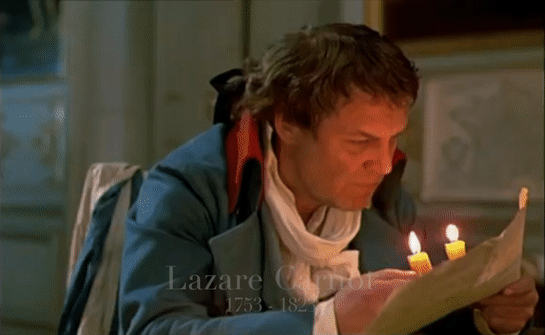
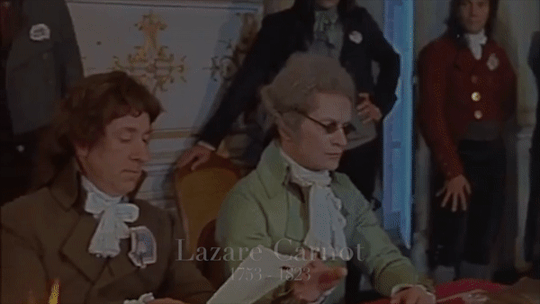

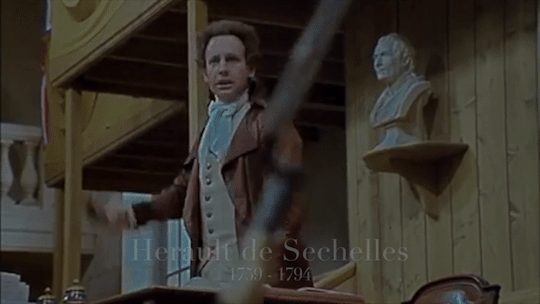
Anonymous: Who are your favorite members of the Committee of Public Safety?
Maximilien Robespierre, Antoine Saint-Just, Lazare Carnot, et Herault de Sechelles. All you’re missing is Camille Desmoulins (not a member) and you have my favorite French revolutionaries all together.
Portrayals from Danton (1983) and La Revolution Francaise (1989)
Members of the Committee of Public Safety not added to my favorites list.
#pressles musing#French revolution#French history#history#maximilien robespierre#saint just#lazare carnot#herault de sechelles#flood pressles box#sincerely anonymous#Presley gifs#la revolution francaise#Danton (1983)
138 notes
·
View notes
Text
The sluttiest thing a man can do is being Marie-Jean Hérault de Séchelles.
37 notes
·
View notes